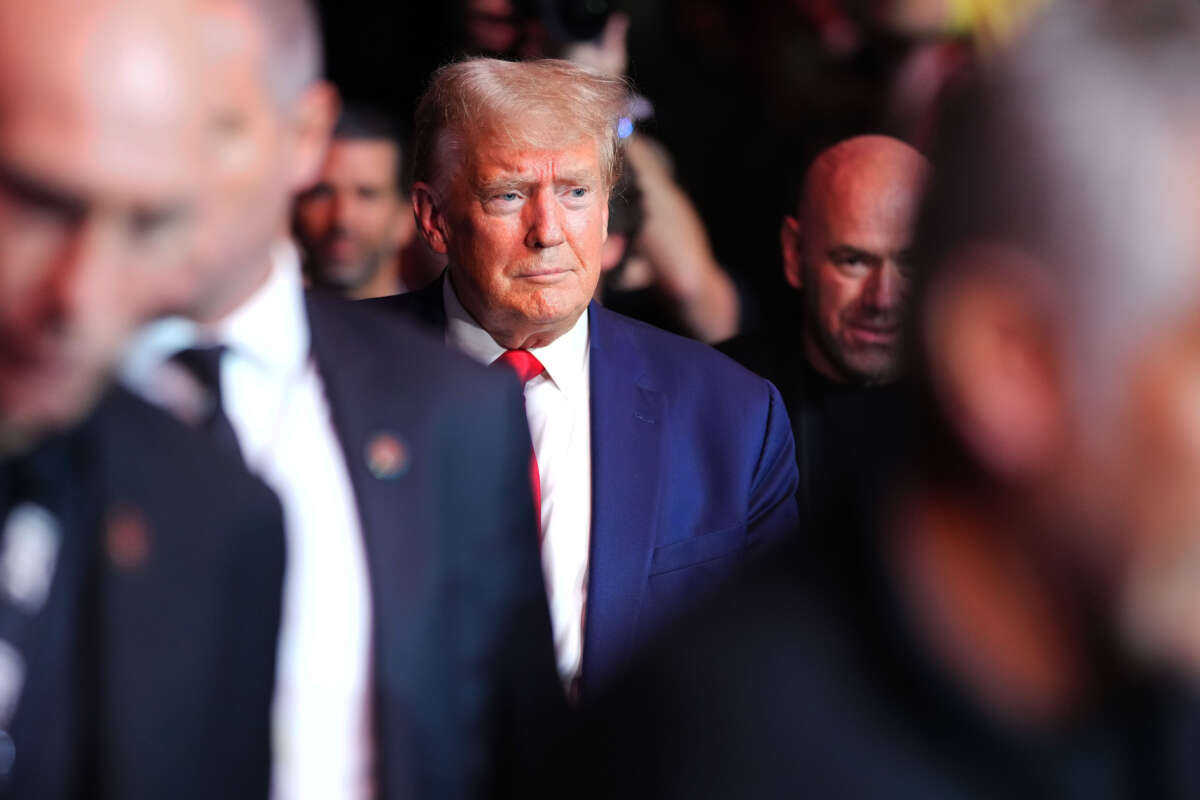On Monday evening, the U.S. Supreme Court agreed to bypass the usual appeals process to expedite a hearing to its chambers regarding pre-trial claims made by former President Donald Trump in seeking to dismiss federal charges in the election subversion case against him.
The Court’s order came just hours after special counsel Jack Smith submitted a writ of certiorari brief to the justices. Smith is requesting the review in response to Trump’s legal team appealing District Court Judge Tanya Chutkan’s ruling last week, which stated that Trump cannot cite presidential immunity claims to have charges against him dismissed.
The order from the Supreme Court means it will hear considerations, likely within the coming weeks, regarding why it should rule quickly on the matter rather than allowing the appeals process to play out as it normally would.
Trump faces four federal criminal charges relating to his attempts to overturn the results of the 2020 election, as well as for inciting a mob of his loyalists to descend upon the U.S. Capitol building during the certification ceremony of the Electoral College on January 6, 2021.
Within her ruling issued earlier this month, Chutkan rejected Trump’s claims that the case should be dismissed altogether due to him supposedly having presidential immunity because he was in office at the time of his alleged misdeeds. The standard asserts that presidents should be free from civil and legal repercussions when it comes to actions involving their executive branch responsibilities.
Chutkan wrote in her decision that “former Presidents enjoy no special conditions on their federal criminal liability” and that immunity privileges do not confer presidents “a lifelong ‘get-out-of-jail-free’ pass.” She added that Trump “may be subject to federal investigation, indictment, prosecution, conviction, and punishment for any criminal acts undertaken while in office.”
Trump appealed that ruling last week. Ordinarily, such an appeal would go to an appellate court, where a three-judge panel would hear arguments from both sides and rule on the case accordingly. Such a process can take several days, if not weeks, and could itself be appealed to a higher court — usually to a full en banc decision where the entire roster of judges on the appellate court would hear the appeal, or possibly to the Supreme Court, which could take a similar length of time to decide on the matter.
Smith likely sought a quicker appeals process through the High Court due to the Trump and his lawyers’ strategy of drawing the trial out; if the trial goes beyond the 2024 presidential election and Trump wins, he would likely appoint a new attorney general who would drop all charges against him (in this case and in others). The current schedule for the trial aims for it to begin in March.
Smith, in submitting his initial brief to the Court requesting an expedited review, recognized that his action was atypical. “The United States recognizes that this is an extraordinary request. This is an extraordinary case,” the special counsel wrote.
Bypassing the usual appeals process standard is a rare action for the Supreme Court, albeit not unheard of. In issuing the unsigned order, the Court didn’t indicate which justices agreed to Smith’s request; to entertain such a writ requires approval from at least four Court justices, and their approval indicates that they likely agree with the special counsel’s assertion that the case is an extraordinary one.
Within its order, the Supreme Court also said that Trump had to respond to Smith’s brief no later than the middle of next week. However, the D.C. District Court of Appeals issued a subsequent order fast-tracking that brief to be filed no later than this coming Wednesday.
The Court’s eventual decision won’t necessarily result in a quick ruling on the constitutional question itself, as the expedited order merely compels both sides to argue over whether a faster decision needs to be made, and what that decision should be. The Court could theoretically take weeks to rule on the matter.
But the Court has acted swiftly in other situations where a constitutional question of this magnitude was presented in a time-sensitive manner, and it has ruled against Trump in cases relating to his expansive take on presidential privileges claims — rejecting, for example, his bid to block Congress from receiving presidential records from his time in office during the January 6 committee’s investigation of his actions preceding the U.S. Capitol attack.
